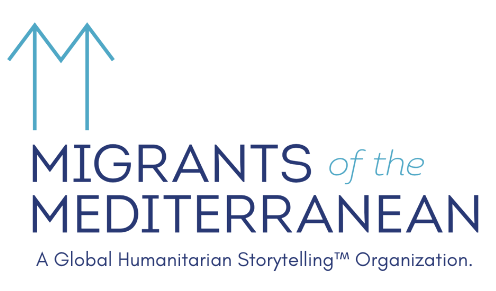MotM Reunion | Meet Pazi: One Year Later
Introduction
It was dark by now and Pazi and I were speed-walking through the rain slicked streets of central Rome. His bus was departing in twenty minutes and we were still at Piazza Navona, across town and still on the other side of the Tiber. If he missed this bus he would have to spend the night on the streets: it was the last of the evening, and one of two buses and one train calibrated to complete a three-hour trip to his state housing 15 miles away.
Pazi (27, Gambia) was transferred to the housing camp after leaving Lampedusa in the fall of 2016. In a rental car last April, I drove to meet him there to see how he was adjusting to life after his initial reception on the island.
I was looking for something that resembled an apartment building, but the area was deserted. The car idled on the edge of a forgotten frontage road overgrown with weeds, while I wondered cross-eyed at my GPS. I noticed at the street’s end a young Black woman, she was a prostitute. As much as I wished against my knowing instinct that she would not be the thing that signaled that I had, in fact, arrived at my destination, it wouldn’t be so.
The road went further until it dead-ended in a parking lot before a sprawling two-story building. It was the kind you would find in an office park, not the kind where one might live. I mistook it as abandoned until I followed the ribbons of barbed wire at its perimeter to the small security hut adjacent to its entrance. There, pockets of young African men and women filtered in and out, pacing through the parking lot under an unnervingly bright spring sun: all of this was hidden in the plain light of day.
The camp manager called for backup and raised his voice when I arrived. I promptly hid my camera at the bottom of my bag. The Carabinieri (Italian military police) emerged from the hut with guns slung over their shoulders, encircled me and confiscated my passport. One took it inside for inspection. The camp manager demanded to know why I had come here at a volume and pitch that harmonized with guilt. Pazi stood at my side like a kid defending his pal on the playground.
I assured them I was not an investigative reporter, their concern for which they made clear. I shook the manager’s hand in a show of peace. I told them I was a writer following Pazi but that he was my friend too––although with a scene like this, now, I wanted to become exactly what they feared.
They handed my passport back and told me not to talk to anyone else. Pazi and I chatted briefly on the narrow lawn next to the barbed wire and decided that from then on we would meet in Rome. A month later, in May 2017, we took an extended stroll through the city: to the Spanish Steps, pushing past mobs of tourists, lingering along the lungotevere, and stopping to observe the river aside Castel Sant’Angelo while Pazi narrated the nightmares he still saw of people’s bodies being cut open when he was captive in Libya.
There’s no comfort at that out-of-sight housing to soften the blow of those memories either. In May he and his friend reported more than 4,000 inhabited the space, mostly Eritreans, although people came from all over. There was little or no hot water to bathe. Management intimidated them. There were bed bugs on the walls and bedsheets. Pazi couldn’t confirm if the prostitutes that line the streets in town live in his housing, but he knew they were young Nigerian women.
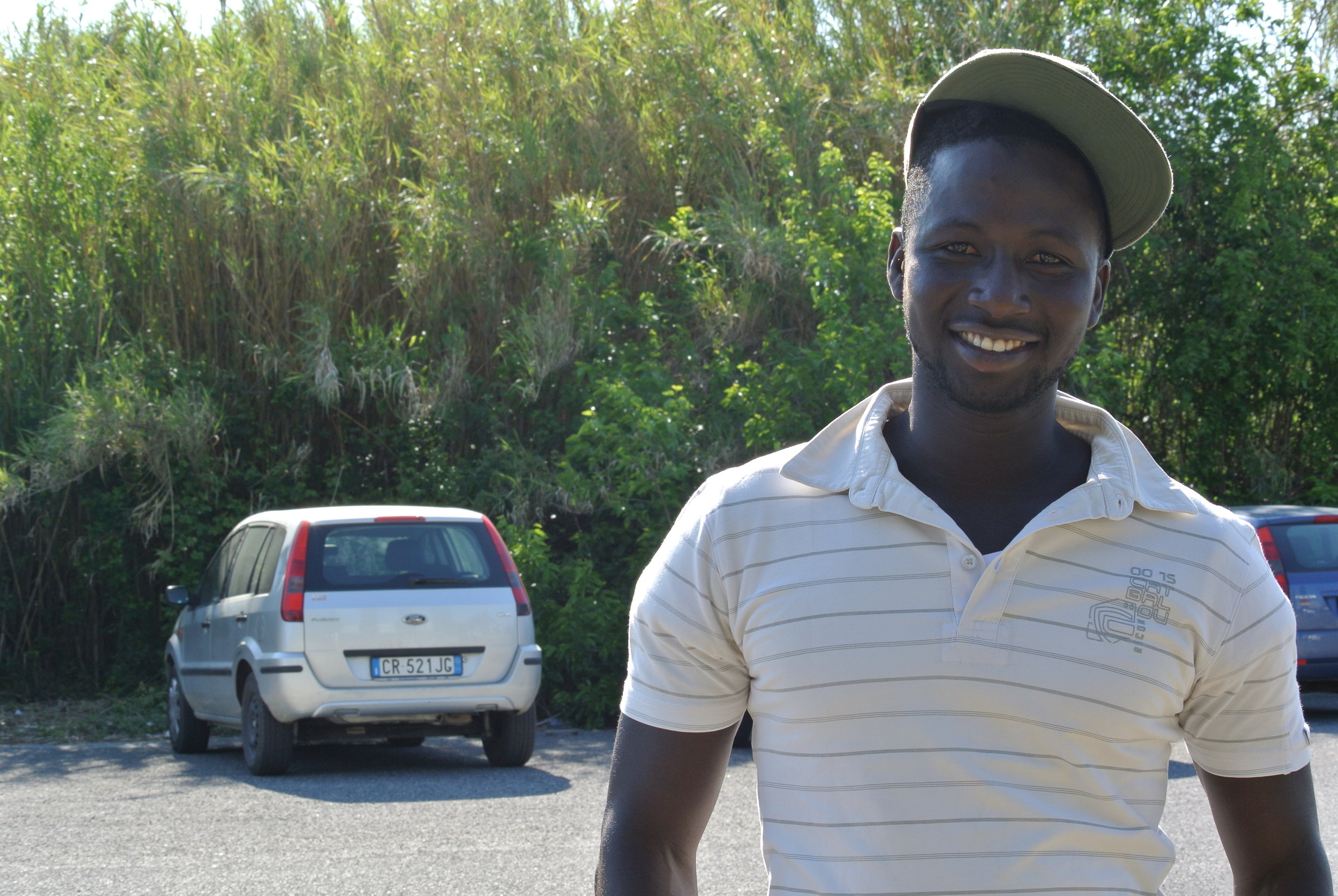
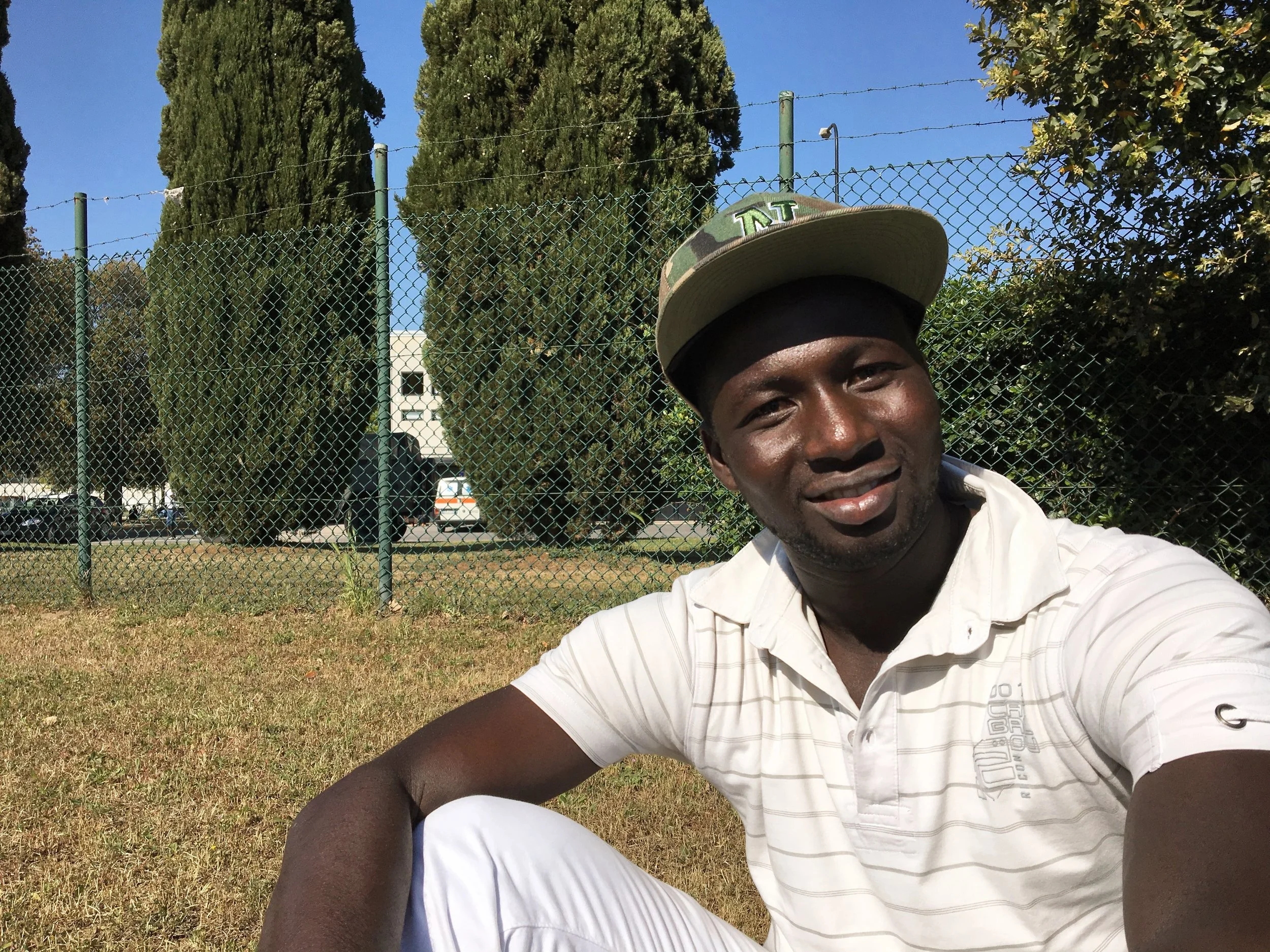
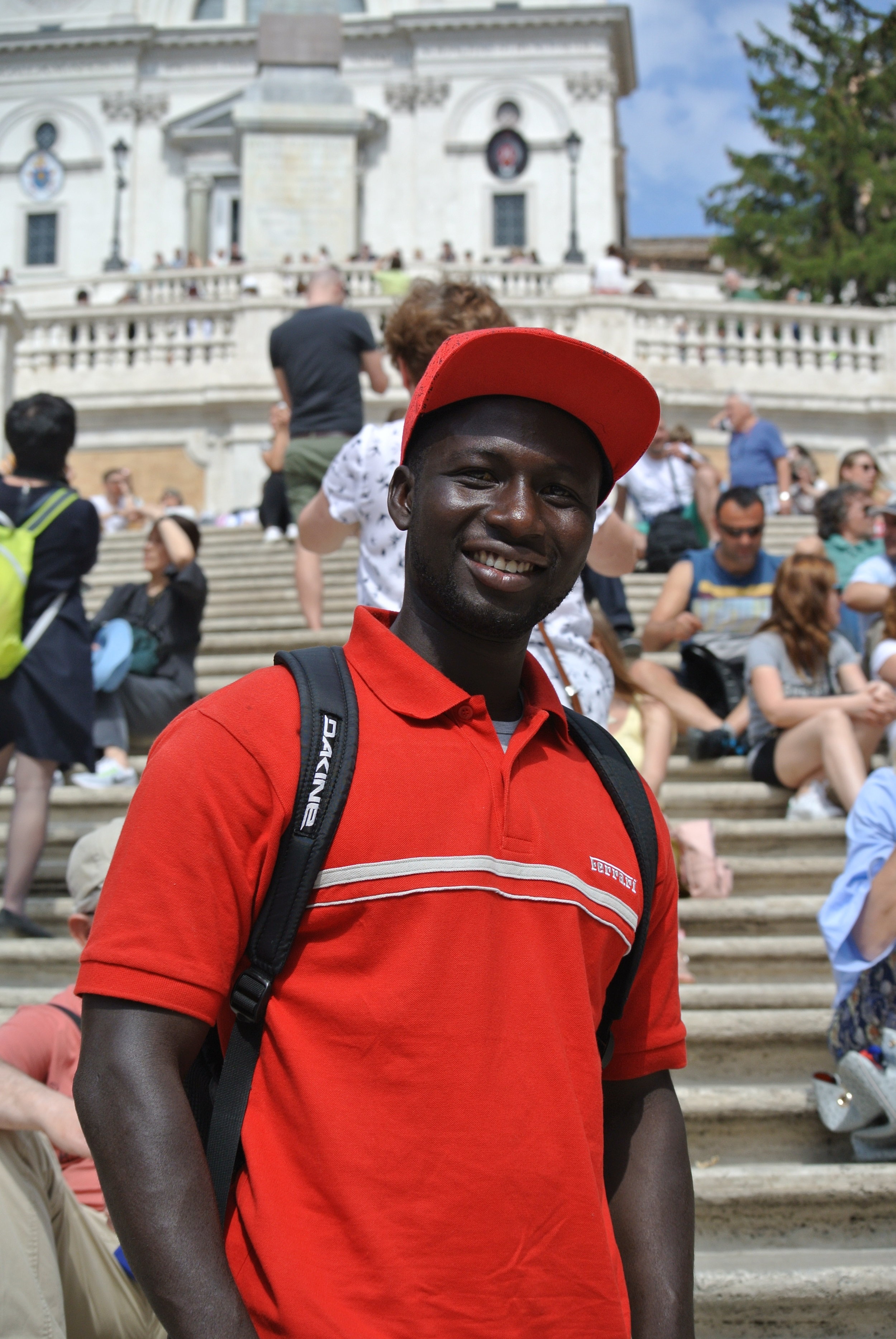
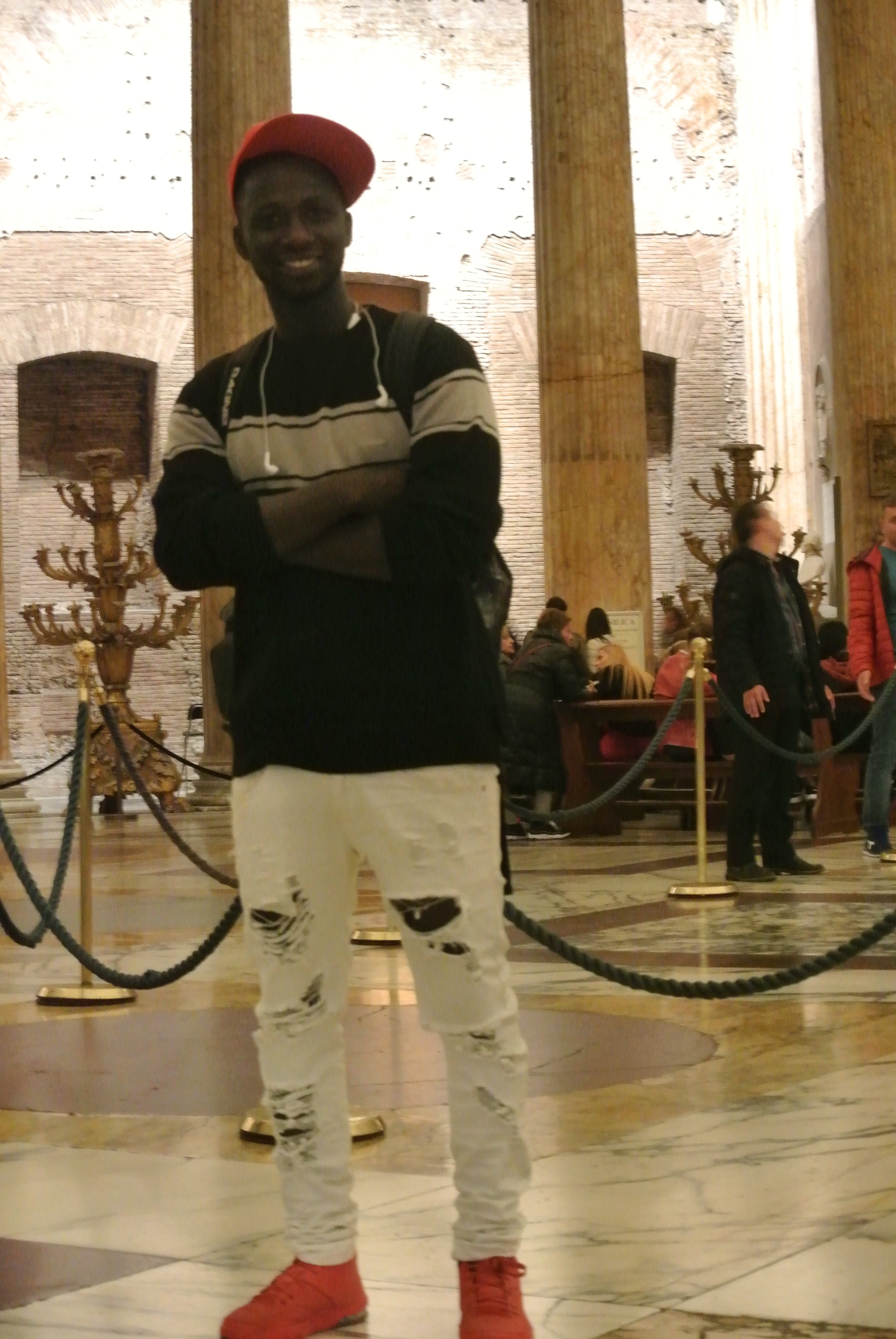
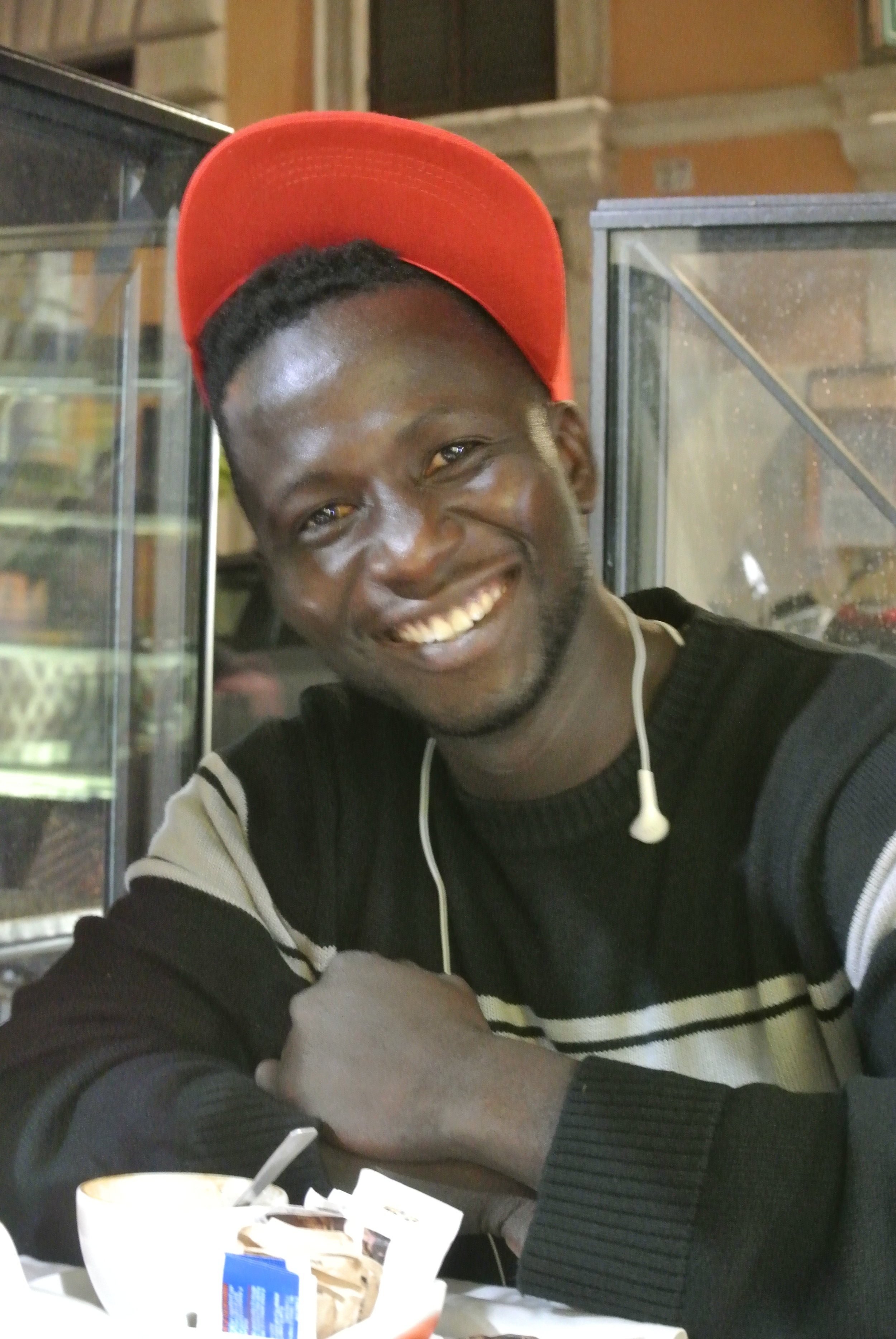
We met again in Rome in November 2017, on the occasion of his one-year anniversary in Italy. We convened in front of the Vatican, it’s the ritual meeting spot we agree on now for its central location and, tacitly, its beauty.
Pazi is taking language classes from volunteer teachers in the city a few days a week, and whereas a year ago in Lampedusa he spoke only the word “ciao,” now he speaks Italian in full sentences. He’s received a number of certificates to validate his proficiency as well. He enjoys school and his teachers, “They love us,” he said, “when you go, they smile for you.”
That doesn’t happen everywhere, people smiling for him. On the bus during his commute people have told him, “Vaffanculo,” (“fuck off”) when he takes the seat next to them. He’s been called a “pezzo di merda,” (“piece of shit”), or simply been told to go away, “vai via.”
“It’s crazy,” he said in a tone more bewildered than angry.
“They should not be afraid of me...
I am a human being like them.”
We walked for hours. We paused on the bridge, Ponte Regina Margherita, a main crossing point that lets out beside one of the city’s most popular sites, Piazza del Popolo. We looked at the river going by––Pazi does this a lot, stop to just watch. We talked about being an outsider and being misunderstood, and he, as a Black migrant man in Italy, as not being seen as an equal.
But “siamo uguali,” he said, “we are equal.”
We wandered down Via di Ripetta, a central pedestrian artery. He said he still wakes up crying sometimes; Libya won’t leave him alone. The tourists were inevitable and omnipresent, and rendered the contrast between what we were saying and what we were seeing into a surreal awakening.
Suddenly, we were standing before the Pantheon and I made him go inside to see this magical structure he had never seen before. I made him stand in the exact center of the floor so we could stare up through the hole in the dome to the sky. “When it rains it stays dry inside,” I told him, and he said it was amazing.
We sat at a cafe and he updated me on what had changed since May. The bed bugs still infest the room. “Now they are my friends,” he resigned. He sees their blood marks left behind on the bedspread when he wakes in the morning. “What am I going to do? They are my friends. I have to live with them. I can’t do anything.”
The water still usually runs too cold to bathe; he boils pots of water to mix with the cold stream in the shower. There are rats in his room now too. "That's why they do not allow anybody to enter to see what's inside," he said, management's guilt would be revealed.
So exhausted from eating the same plate of pasta or rice every night for a year, Pazi has taken to dipping pieces of baguette in water as a more palatable alternative. But then, like a true Italian, bowing to the immediate beauty before him and seeming to forget the rest for a moment, he stirred the sugar into his coffee and exhaled,
“The cappuccino is nice.”
It was getting late and the rain was starting. We had to go. I was worried he would miss his bus, but I wanted to keep talking too. We were rushed and out of breath. An ambulance was passing by. It was hard to hear each other.
What would he say to an Italian, a European, an American so they would not fear him for his color, I wanted to know.
“We are all the same. If you open my chest you will find a red heart there. And also them," he said, before we made it by the skin of our teeth to the bus stop and I watched him step aboard.
Pazi is an amazing human being.
Read Pazi's original journey story, recorded in November 2016 >
